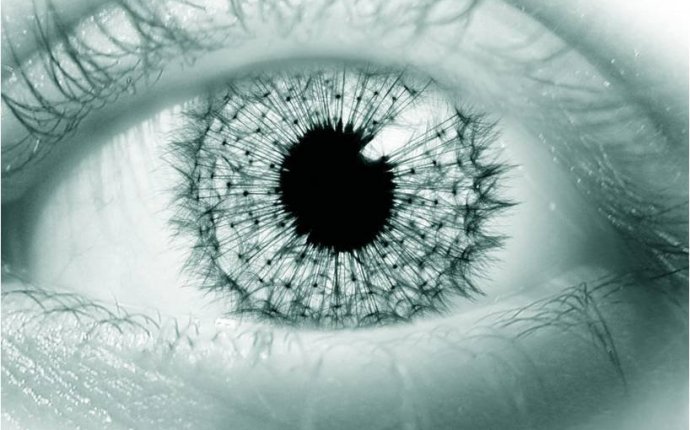
List of All Disorders
“All of us at anxietycentre.com have experienced debilitating anxiety. But we’ve also overcome it and returned to normal and lasting health. Because we know the hardship anxiety unwellness can cause, we are committed to helping others, with over 27 years of service.” - Jim Folk, President, anxietycentre.com

Over 100 anxiety symptoms and signs for anxiety, anxiety attacks (panic attacks), and other anxiety disorders including the following anxiety symptoms:
- Numbness and tingling
- Dizziness
- Chest pain
- Headaches
- Neck tension
- Stomach upset, nervous stomach
- Pulsing in the ear
- Burning skin
- Fear of impending doom
- Nausea
- Shortness of breath
- Electric shock feeling
- Shooting pains in the face
- Heart palpitations
- Weakness in legs
- Feeling like you are going crazy
- Inability to rest
- Sleep problems
There are a great many more anxiety symptoms. For a with descriptions, including severe anxiety symptoms, see below.
What is anxiety?
Anxiety is defined as:
- A state of uneasiness, apprehension; as about future uncertainties.
- A state of apprehension, uncertainty, and fear resulting from anticipation of a realistic or fantasized threatening event or situation, often impairing physical and psychological functioning.
In other words, anxiety occurs when we behave (think and act) in an apprehensive manner, such as when worrying about an event or situation.
With this in mind, anxiety is not a force or 'thing' in itself. It's a state of uneasiness that results when we worry. More about this in a moment.
Because imagining the future in an apprehensive manner is a behavior, it's not caused by a biological, chemical, or genetic problem with the brain. Anxiety results from a certain style of behavior.
Visit our 'anxiety' page for additional information.
What is anxiety disorder?
Everyone experiences anxiety from time to time. This is normal. This is why anxiety is not a medical, biological, chemical, or genetic problem.
Anxiety turns into a 'disorder' - disruption to normal functioning - when anxiety and its sensations and symptoms interfere with a normal lifestyle.
It's important to keep in mind that anxiety disorder should NOT be equated with a medical condition or serious mental illness (when there is a medical, biological, chemical, or genetic cause). Unfortunately, the term mental illness is used to refer to any problem caused by behaving in an abnormal way (what is considered to be outside of the 'norm'). All of us have behaviors that fall outside of the norm, which is why all of us could be categorized as having some type of mental illness.
While you may have or have been diagnosed as having anxiety disorder, this means you have overly anxious behaviors (tendencies). It doesn't mean you are somehow mentally deficient or have something medically, biologically, chemically, or genetically wrong.
Visit our anxiety disorder page for additional information.
If anxiety disorder isn't a medical, biological, chemical, or genetic problem, why does anxiety cause symptoms? That's next.
What are anxiety symptoms?
Behaving in an overly apprehensive manner creates the physiological, psychological, and emotional state of anxiety. Anxiety activates the stress response, which stresses the body. A body that becomes overly stressed can exhibit symptoms of stress.
So anxiety symptoms are actually symptoms of stress. They are called anxiety symptoms because behaving apprehensively is the main source of the stress that overly stresses the body, which then, causes the body to exhibit symptoms.
Because each body is somewhat chemically unique, the type, number, intensity, duration, and frequency of anxiety symptoms will vary from person to person. For example, one person might have just one mild or a few anxiety symptoms, whereas another person might have all anxiety symptoms and to great severity. All combinations and variations are common.
Chapter 9 in the member's area of our website is our anxiety Symptoms Section. Chapter 9 includes all symptoms (not just the symptoms listed below), including in depth descriptions about how each symptom feels, what causes it, what you can do to alleviate it, and how prevalent each symptom is (the percentage of people who experience each symptom).
Are anxiety disorder symptoms different from anxiety symptoms?
No. Anxiety disorder symptoms and anxiety symptoms are the same. The only difference between the two would be, as anxiety and its persistence increases, so will the number, type, intensity, frequency, and duration of anxiety symptoms increase. Otherwise, they are one and the same.
Anxiety symptoms in women and men
The majority of anxiety symptoms in women and men are similar, but there are some anxiety symptoms differences.
For example, anxiety causes stress hormones to enter the bloodstream where they travel to targeted spots in the body to bring about specific emergency response changes. These changes prepare the body for immediate action.
Since stress hormones affect other hormones, women can experience a wide range of sensations and symptoms due to how stress hormones affect the hormones that affect the female menstruation cycle. Many women experience increases in anxiety related symptoms in association with their monthly cycle.
Women can also experience an increase in symptoms due to the biological changes of pregnancy, postpartum recovery, and menopause.
Women are also more emotionally-centered than men, so their anxiety symptoms can seem more numerous and daunting.
Men also have challenges, as stress hormones also affect male hormones. Men who are more emotionally-centered can also struggle more with anxiety symptoms.
For additional information, see our anxiety symptoms list below.
Types of anxiety and symptoms
Problematic anxiety can be experienced in a number of ways. This is why there are specific types within the Anxiety Disorder classification. But just because there are different types of anxiety disorder doesn't mean problematic anxiety has a number of different causes. The cause is the same - behavior. But some people struggle more in one area than in others.
Below are the most common types of anxiety disorder.
Panic Attack Disorder (PAD) - which is the same as Anxiety Attacks
Anxiety attacks, also referred to as panic attacks, are episodes of high intensity fear and anxiety. Panic attacks often occur suddenly and 'out of the blue.' Sometimes the cause of a panic attack is obvious, such as when you feel in immediate danger with no escape. But at other times, panic attacks can seem to occur without reason.
Panic attacks and their symptoms can last from just a few moments to hours. During the attack, most people feel an incredible amount of fear, trepidation, and foreboding, which is often accompanied by a strong urge to escape, a feeling that you are about to lose control, and for many, that they may even die.









